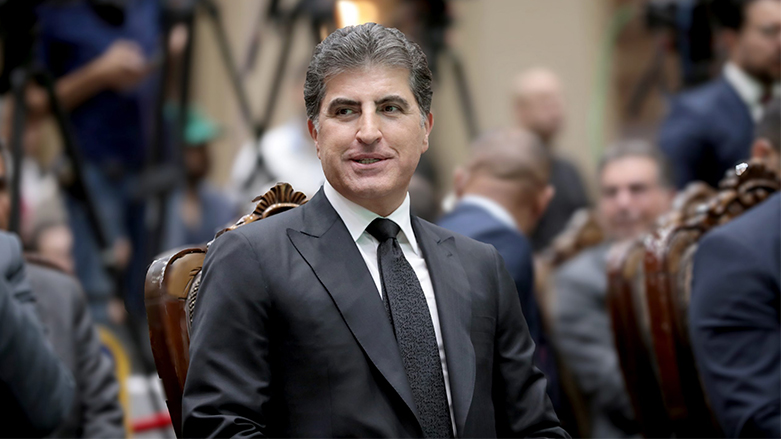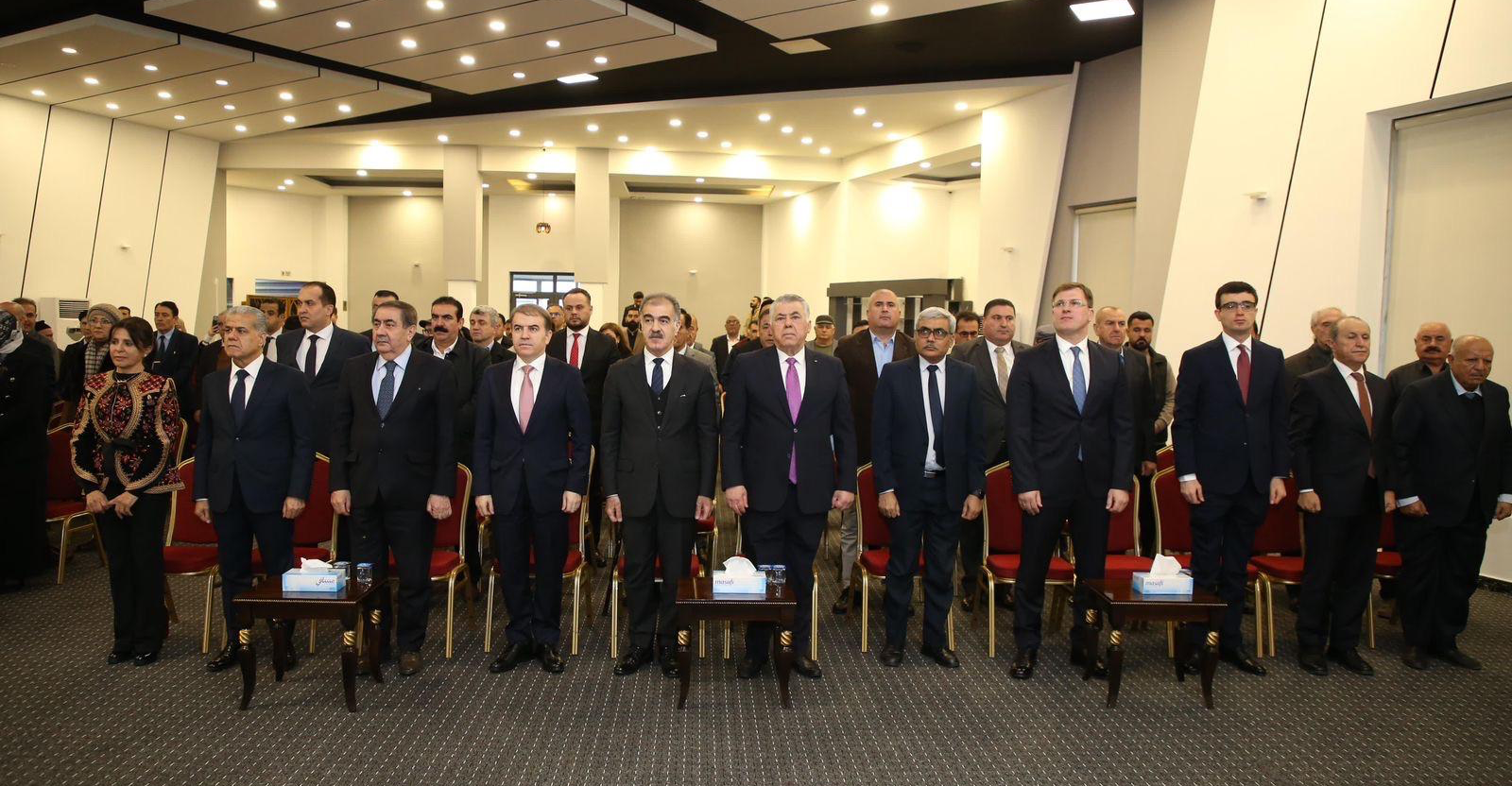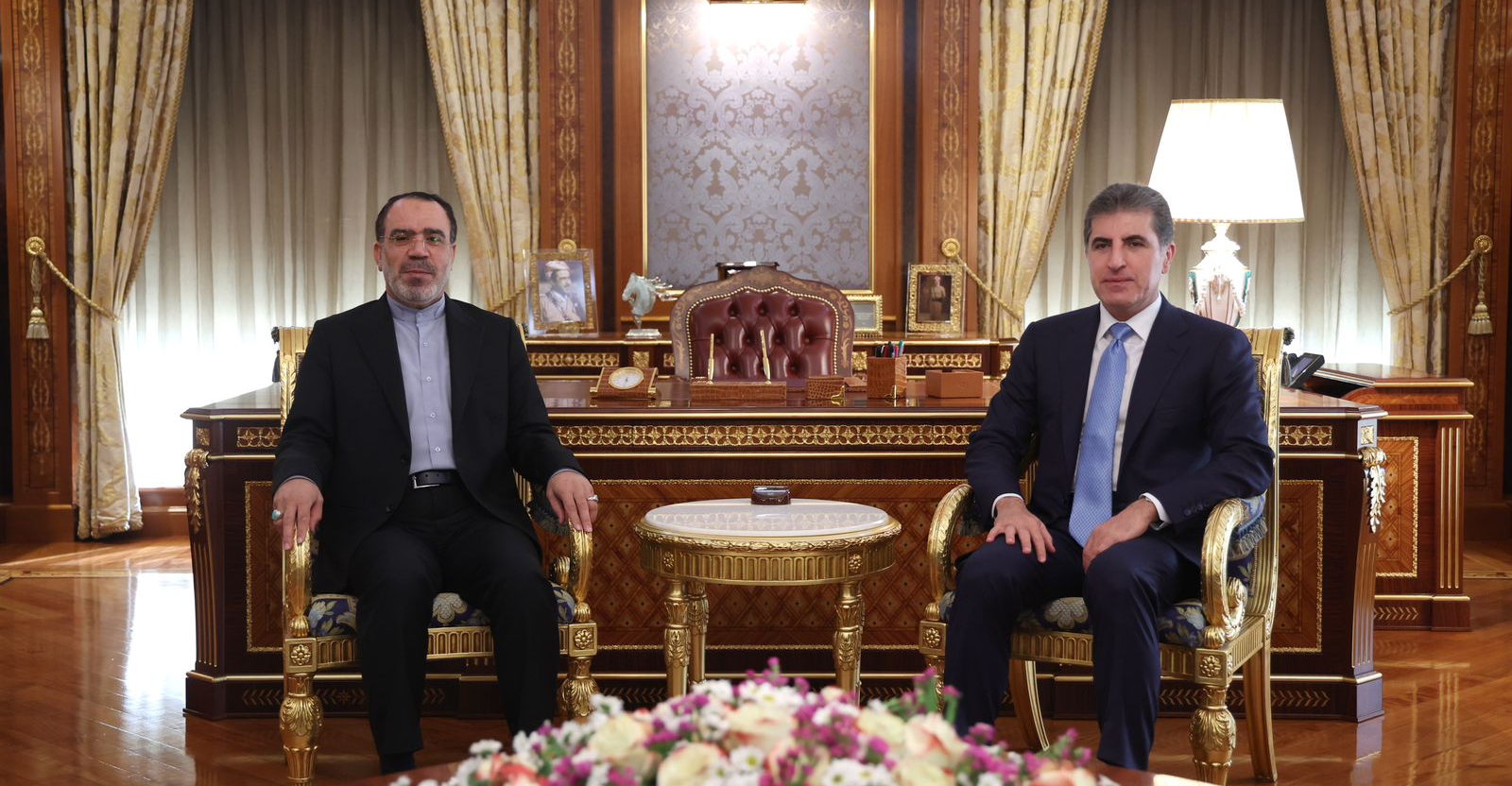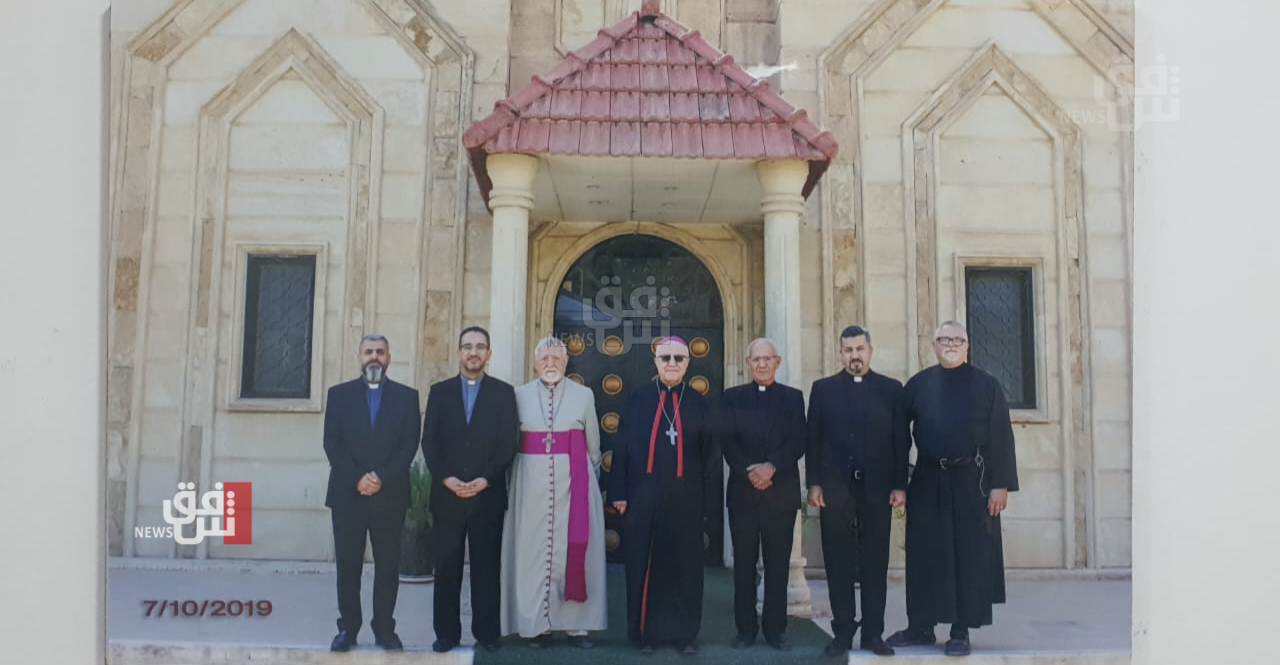Nechirvan Barzani's 5th visit to Iran: quest for stronger Kurdish-Iranian Relations
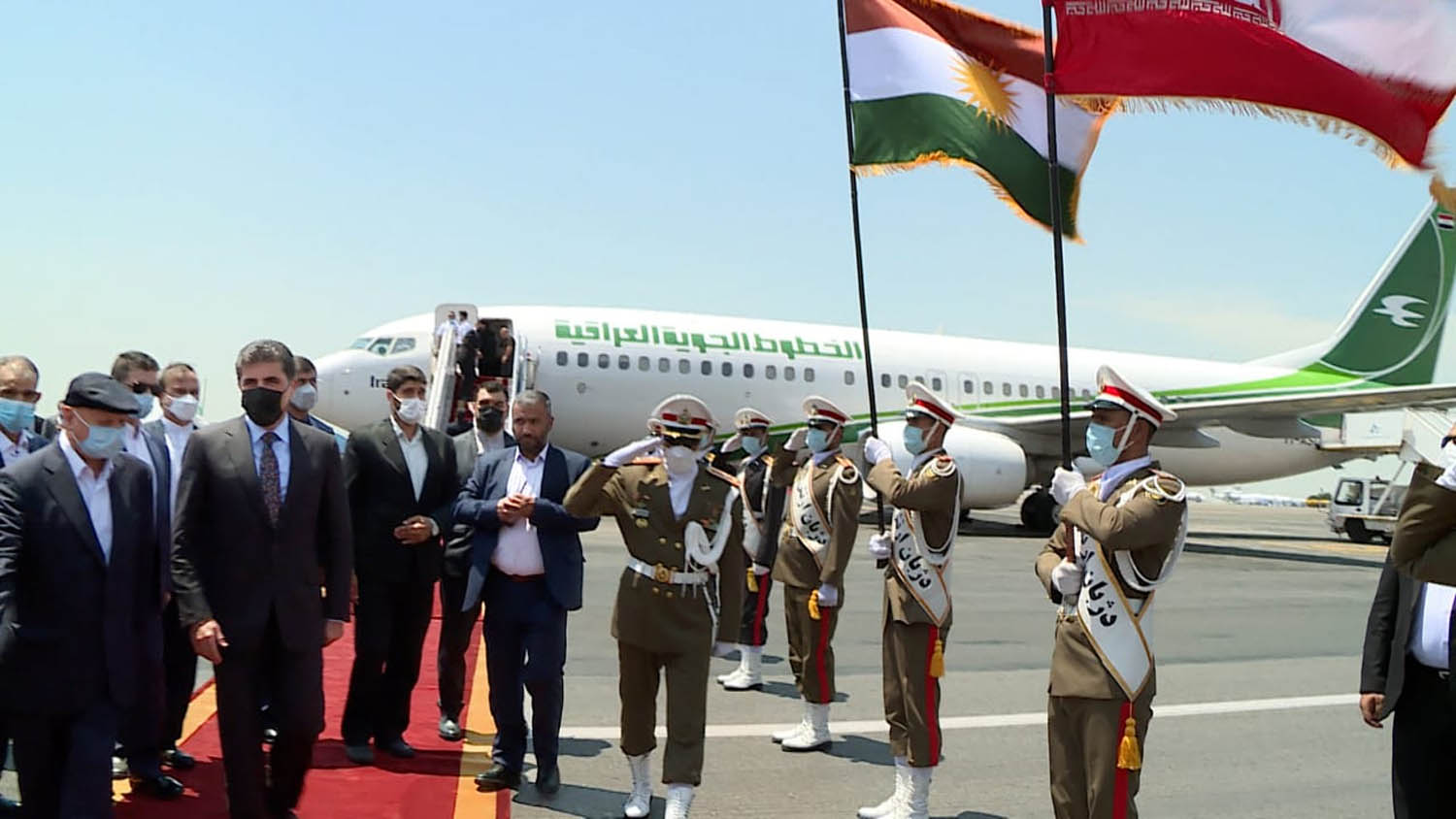
Shafaq News/ The President of Kurdistan Region, Nechirvan Barzani, is set to embark on his fifth visit to Iran in 11 years, with the primary goal of bolstering ties between the Region and Tehran.
This visit follows extensive discussions with political leaders in Baghdad, during which the Kurdish President articulated his vision for a new phase in the relationship.
The timing of this visit is noteworthy. It comes shortly after the Turkish President's historic visit to Baghdad and Erbil last month, underscoring the evolving dynamics in the Region's diplomatic landscape.
Shared History
The Kurdistan Region's relations with Iran are marked by a complex framework characterized by shared history, cultural and ethnic ties, mutual interests, and geopolitical challenges and conflicts.
Situated between Iran, Turkiye, and Syria, where Kurdish nationalism resonates widely, the Kurdistan Region shares a common border with Iran stretching for 600 kilometers. This proximity facilitates trade and movement through five official border crossings and several unofficial ones.
The relations deepened during the Iranian Islamic Revolution in 1979 led by cleric Ayatollah Ruhollah Khomeini, as Kurds in Iraq stood by Iran in its war against the monarchy regime, which ended by toppling the Shah and the Pahlavi dynasty.
Following the fall of Saddam Hussein's regime (The Ba'ath) in 2003, relations between the two sides witnessed close diplomatic and economic cooperation. Iran became one of the first countries to open consular offices in Erbil and Al-Sulaymaniyah, formalizing an official diplomatic framework.
Despite numerous commonalities between the Kurdistan Region and the Islamic Republic, both within Iraq and within the Region itself, visions regarding various issues, especially nationalist ones, have not followed the same trajectory between the two sides.
Geopolitical Balance
The Kurdistan Region's relations with Iran exemplify the intricate connections that shape the Region's dynamics. While shared geography, history, mutual interests, and cultural ties create a foundation for cooperation, geopolitical complexities, and political divergences create challenges that require thorough analysis and discussion.
Geographically, the Kurdistan Region faces constraints due to its lack of a direct sea outlet and proximity to countries like Turkiye, Iraq, Syria, and Iran, each with significant regional influence. These constraints necessitate careful consideration of the interests of these neighboring nations, especially Iran, which holds substantial sway in the area.
An official from the Kurdistan Region's office, speaking to Shafaq News Agency, emphasized the President's understanding of these dynamics, which has led to a strategy of seeking constructive engagement with Iran rather than confrontation.
While Iran's diplomatic approach toward the Kurdistan Region has been cautious and devoid of tension, military actions by Iranian forces have impacted Iran's influence in the Region.
In March 2022 and January 2024, Iran carried out unprecedented attacks on Erbil, the capital of Iraqi Kurdistan, using a dozen ballistic missiles. The Revolutionary Guards claimed these strikes targeted alleged spy headquarters of Israel.
The President of the Kurdistan Region responded to missile attacks on Erbil, asserting that the Region poses no threat to Iran and condemning attacks on civilians, which "contradict the friendly relations" between the two sides.
Addressing Tehran's claims about Israeli bases in the Kurdistan Region, the President stressed that Iran provided no evidence to support these claims.
Barzani emphasized the significance of relations with Iran during recent engagements, referring to Iran as a "significant neighbor" and affirming the Region's commitment to preventing its territories from being used to threaten Iran.
During his visit to the Iranian Consulate in Erbil to commemorate the victims of the terrorist bombing in Kerman, he said, "We will not pose a threat to our neighbors, especially the Islamic Republic of Iran, in any way," emphasizing the Region's dedication to Iran's security.
He expressed gratitude, stating, "Iran has always been by our side when we faced challenges, and we are indebted to Iran."
On the other hand, Iran's Deputy Foreign Minister for Iranian Expatriates and Consular Affairs, Hassan Qashqavi, highlighted the "inevitability of Iranians and Kurds coexisting due to shared struggles," emphasizing the importance of standing together with "these beloved ones," referring to Kurdish leaders.
While political ties with Iran are significant, Turkiye's economic presence in the Kurdistan Region surpasses Iran's. Despite an initial upward trend in Iranian exports to Kurdistan and Iraq until 2021, a 13% decrease was observed in 2023.
In 2022, Iran exported approximately $7.3 billion worth of goods to Iraq, while Turkiye exported about $12.7 billion.
Moreover, the Representative of the Kurdistan Regional Government (KRG) in Iran, Nazim Omer Dabag, emphasized in a previous statement the stark contrast between Turkiye's economic dominance and Iran's decline. He noted that while Iran had around 150 companies operating in the Kurdistan Region, Turkiye had over 2500 companies.
Building Bridges
Despite these complexities, President Barzani's statements reflect a positive stride toward strengthening relationships. Iran expressed a desire for official meetings, underscoring a genuine commitment from both sides to foster strong ties.
Barzani's repeated affirmations, such as "We are determined to open a new chapter in relations with Iran and develop existing relations in all fields," highlighted the shared determination for enhanced collaboration.
Moreover, political analysts note Iran's pivotal role in facilitating dialogue among Kurdish factions and its favorable relations with the federal government in Baghdad, contributing to its political influence in the Region. This delicate balance is anticipated to be maintained through the Tehran-Baghdad-Erbil triangle.
Amid numerous unresolved issues between Erbil and Baghdad, including matters concerning oil exports, disputed territories, and employee salaries, the Kurdistan Region stands to gain from Iran's solid diplomatic relations with the Iraqi government. Leveraging these ties could offer pathways to resolving these longstanding issues.
These developments lay a foundation for strengthened ties and collaborative efforts in various fields.
Barzani's Key Role
Nechirvan Barzani's extensive history of visits to Iran, comprising five trips over 11 years, has consistently attracted attention from Tehran. His participation in Iran's former President Hassan Rouhani's inauguration ceremony was particularly significant, marked by the display of the Kurdistan Region flag. This gesture was followed by a high-profile meeting with Iranian President Ebrahim Raisi, which quickly made headlines in Iranian media.
During their recent meeting in 2021, President Raisi emphasized the "deep-rooted and sincere nature" of relations between the Islamic Republic of Iran, Iraq, and the Kurdistan Region.
Leaders and senior figures within the Kurdistan Regional Government, notably the Kurdistan Democratic Party, are actively working to de-escalate tensions and enhance relations with Iran. Iranian officials have acknowledged this effort, signaling mutual efforts to foster closer ties.
Both sides recognize each other's strengths and potential contributions, leading to a mutual understanding that the current climate is conducive to meaningful dialogue, a sentiment echoed by Kurdish leaders.
While Iran has traditionally maintained strong ties with the Patriotic Union of Kurdistan in Al-Sulaymaniyah, recent developments suggest Tehran's concerted efforts to collaborate with Erbil and engage with the Kurdistan Democratic Party, recognizing Nechirvan Barzani as a key figure for constructive dialogue and potential agreements.
Seeking High-Level Reciprocal Visits
Kurdish officials have frequently expressed their belief that "Iran will not find a better friend than the Kurds." However, they also voice disappointment with Tehran's approach, noting the absence of a high-ranking official equivalent to a president visiting Erbil, a common practice among Western or regional officials. This sentiment was highlighted during the Turkish President's recent visit.
Kurdish officials have extended invitations for reciprocal visits to Kurdistan in their visits to Iran, aiming to deepen and strengthen bilateral relations.
The question now arises: Will President Raisi follow in the footsteps of his counterparts, such as President Erdogan of Turkiye or President Macron of France, by reciprocating such visits and gestures?

